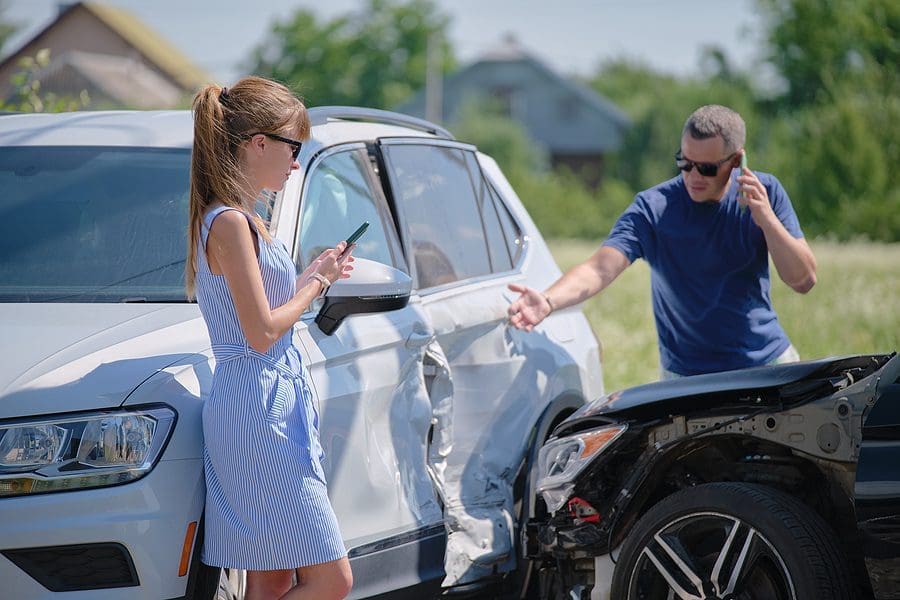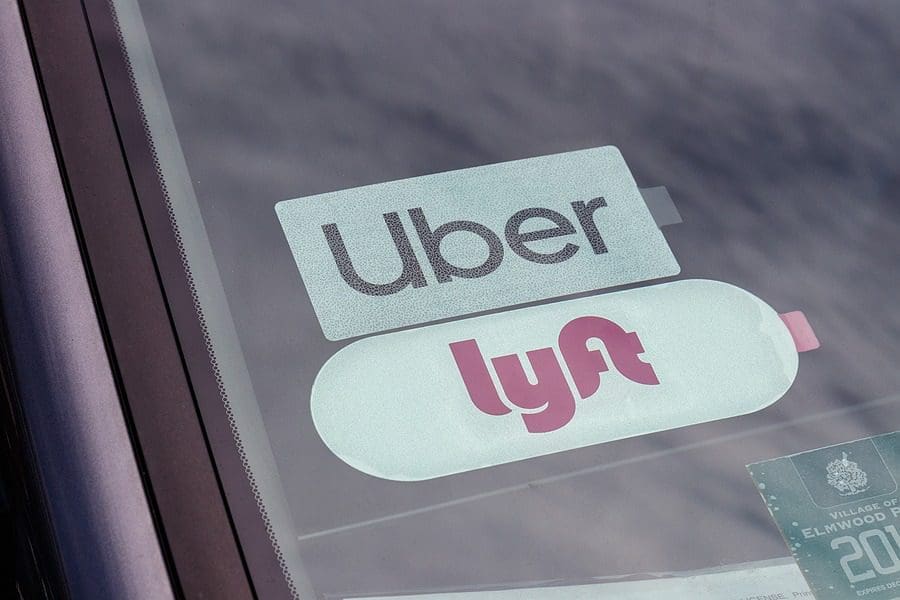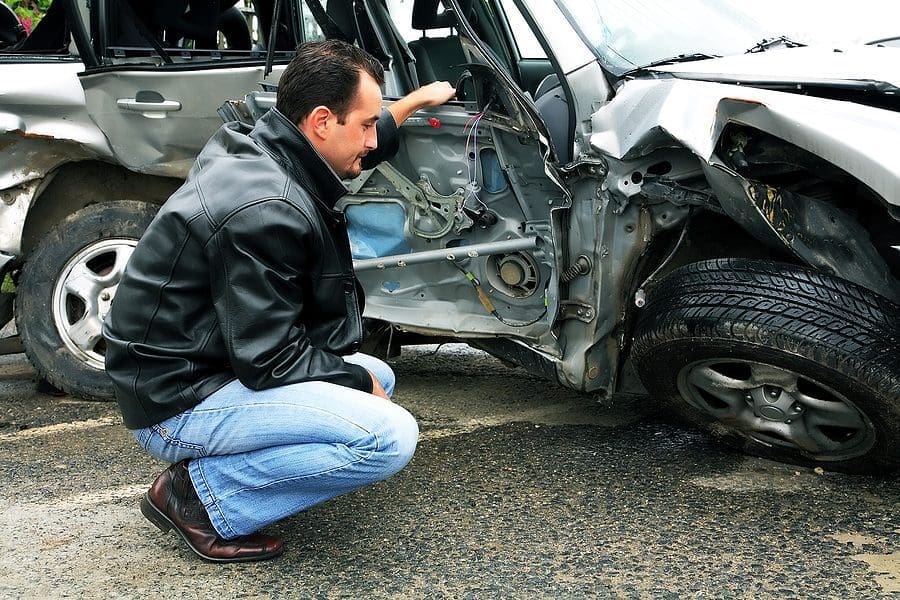JONES LAW GROUPYour Lawyers for Life! Personal Injury Law Firm in St. Petersburg

With credible and relevant evidence, a personal injury lawyer can help you prove the four elements of negligence in a Florida car accident claim. Summary Whether you’ve been involved in a minor fender-bender, or severely hurt in a major car accident, you want to know what you need to do to obtain the compensation you […]
Call our personal injury law office directly at (727) 512-9847
At Jones Law Group in St. Petersburg, FL, we would like to hear from you. Contact us for a free personal injury case consultation.
Call our personal injury law office at (727) 512-9847
Get educated on the Florida's personal injury laws and more.
With credible and relevant evidence, a personal injury lawyer can help you prove the four elements of negligence in a Florida car accident claim.
Summary
Whether you’ve been involved in a minor fender-bender, or severely hurt in a major car accident, you want to know what you need to do to obtain the compensation you deserve.
You’re certain that the other driver’s recklessness was to blame for the accident, but how do you go about proving that’s the case? After all, it’s very unlikely that another motorist is going to accept all of the blame out of the goodness of their heart.
As you might expect, proving that person’s negligence is going to be a fairly involved process, which will require uncovering the evidence it takes to make your case as strong as possible. That’s why you’re going to need a Florida car accident attorney who has a great deal of experience doing just that.
Jones Law Group attorneys not only have that experience, but we also have the resources it takes to perform a detailed investigation into the accident, gathering the proof you’ll need to win your case.
If you would like to schedule a free consultation to learn how we can help, contact us online or call (727) 571-1333.
The concept of negligence is very easy to understand. It simply means that someone fails to act in a reasonable manner, or doesn’t act in a way that other, reasonable people would act in the same situation.
In regard to a car accident, to prove negligence would require showing a driver didn’t act in a responsible, reasonable manner, and caused an accident that led to property damage and/or injuries to other motorists.
For example, a drunk driver who causes a head-on car accident would be considered negligent because they failed to operate their vehicle sober, inflicting harm on another person. Most of what qualifies as negligence in automobile accident cases is related to driver error.
Florida law follows the principle of “pure comparative negligence.” This means that both drivers in an accident may share fault for human errors that caused the crash. The percentage of fault assigned to each driver will determine the amount of money they may be able to receive.
Let’s say Driver A is hit by Driver B after Driver B ran a red light. However, Driver A was texting on their smartphone at the time.
Driver A’s insurance company performs an investigation and decides that Driver A was 20% to blame for the accident. Driver A’s damages total $100,000. However, that 20% will be deducted, leaving Driver A with $80,000.
Even if the insurance company of the other driver claims you were partially responsible, that doesn’t mean you really were. Your attorney will perform an investigation on your behalf, working to prove you should bear zero responsibility and recover the full value of what your car accident case is worth.
In order to do that, your attorney will have to prove four things – there was a duty of care, the other driver breached that duty, that breach was the direct cause of your injury, and you incurred financial losses, or damages, due to the breach.
Here’s some more information on each of these elements that you must prove.
This is the easiest element to prove because every motorist owes every other motorist sharing the road with them a duty of care. In other words, they have to do everything they can to keep everyone else safe.
This duty not only extends to other motorists, but also to Florida’s vulnerable pedestrians, bicyclists, motorcyclists, and all others on the road.
Unfortunately, Florida drivers often fail to fulfill this duty; negligent drivers are a leading cause of Florida bicycle accidents, injuries to pedestrians, and motorcycle collisions.
The next step will be to prove the negligent driver breached the duty of care by acting in an unreasonable manner.
For example, a distracted Florida teen driver may have been talking on the phone and not paying attention to the road. Or, they may have been behind the wheel while under the influence of alcohol or drugs.
But what if the accident occurred due to the other driver’s car malfunctioning in some way? That could still be a breach of duty.
For example, if a tire blowout causes a wreck, the driver may have been negligent in checking the tire. They may have chosen to drive the car despite the fact the tire was dangerously low on air.
Proving a breach of duty can get complicated. This is one of the biggest reasons why you’ll need to hire an attorney as soon as possible.
The third element to prove is that the other driver’s negligence was the reason you were hurt in the car accident. It’s typically fairly easy to do so.
It doesn’t take much to show that if the driver had not run that red light, you wouldn’t have a broken arm after their vehicle collided with your motorcycle..
Finally, your attorney will have to prove you incurred financial losses due to the negligence of that other party. You’ve not only accumulated medical bills, you’ve also probably lost wages because of the time you’ve had to miss from work.
When involved in a car accident, understanding the types of compensation available is crucial for recovering losses and moving forward. Car accident claims typically cover a range of damages that can be classified into two main categories: economic and non-economic damages.
Each category addresses different aspects of the losses incurred, ensuring that you receive comprehensive financial support.
Economic damages refer to the tangible financial losses that result directly from the accident. These are often easier to calculate as they have a definitive monetary value. Common types of economic damages include:
Non-economic damages address the intangible impacts of the accident on a victim’s life. These damages are more subjective and can vary greatly between types of personal injury claims and from case to case. Types of non-economic damages may include:
A third type of personal injury damages also exists, but it does not directly compensate an accident victim for a loss. Instead, punitive damages serve as a punishment for the defendant in cases involving gross negligence.
For example, a court may see fit to order the defendant to pay the injured party punitive damages in a drunk driving case given the extremely reckless nature of their actions.
Although we don’t dispute that Floridians are bad drivers, it’s not enough to rely on a stereotype to prove negligence in a car accident claim. Again, it will take solid evidence to prove all four elements listed above.
Your best chance of obtaining that evidence is to hire an attorney as soon as you can so an investigation can begin. The sooner you find legal representation, the sooner that investigation can start.
Time is of the essence. The accident scene can change very quickly due to weather conditions, construction, and other factors. That could lead to critical evidence related to the car accident being lost. Your attorney can help in other ways as well.
If the negligent driver’s insurance company refuses to pay you what you deserve, your legal representative can negotiate with the insurer on your behalf. If it still won’t offer a fair settlement, your attorney will be ready to take the case to court if necessary.
It’s obviously incredibly stressful to have to deal with the consequences of a serious car accident. But if you have an attorney working to protect your rights, that will help relieve a great deal of that stress.
You can focus on rest on recovery while your attorney works to obtain the compensation that you have coming. To find the best personal injury lawyer near you, look no further than our team.
Get in touch with the Jones Law Group to learn more about what we can do for you. Call (727) 571-1333 or use our online form to schedule a free case review.
The statute of limitations for filing a Florida car accident claim is generally two years from the date of the accident. This period applies to personal injury claims and wrongful death claims. It is important to file within these periods to preserve your right to seek compensation.
Yes, Florida is a no-fault state, which means that after a car accident, each party’s insurance company covers their own insured’s medical expenses and other related losses to a set limit, regardless of whose negligence caused the accident; you don’t have to prove fault to obtain this compensation.
That means if you are involved in a minor car accident, your Personal Injury Protection insurance might cover all of your expenses. However, you can still claim damages against the at-fault driver if the damages exceed your policy limit.
Jones Law Group Florida auto accident lawyers typically work on a contingency fee basis. If you don’t recover compensation, then we don’t either. The standard fee is usually around 33.3% of the settlement or award, although this can vary based on the complexity of the case.

Uber and Lyft are incredibly popular smartphone apps, providing people with a level of convenience they’ve never had before. But with this popularity comes an increased risk of accidents that can lead to devastating injuries. Rideshare drivers are prone to making mistakes just like any other motorist, and can cause crashes as a result. Jones […]

Summertime is a great time to go riding, especially in such a gorgeous state as Florida. Unfortunately, too many of these types of outings lead to accidents, and those accidents often lead to severe injuries – or worse. This can result in complex legal action being taken by victims in an attempt to recover monetary […]

Semi-trucks are vehicles that have the potential to inflict a catastrophic amount of damage should they collide with another vehicle. The sheer size and weight of these vehicles allow them to not only crush cars with ease but also cover the entirety of a road in destruction. This is bad enough but these vehicles are […]

The weather in Florida is heating up, and boating season is in full swing! As waterways in Florida get more crowded with motorboats, sailboats, jet skis, and fishing boats, it is important to keep safety in mind. Florida not only has many lakes and rivers, but is mostly surrounded by water as well. There are […]

Employer Liability in a Car Accident By: Heath C. Murphy + – Personal Injury When Does the Employer Become Liable for an Employee’s Car Accident If you have been involved in a car accident caused by someone who is working there are two basic ways in which the employer may be held liable; active negligence […]

Summary: Car accidents can be overwhelming, leaving you with not only physical injuries but also a slew of practical concerns. The biggest will likely be getting the money to which you’re entitled from your insurance company. The following is a look at how to use your car insurance after an accident. The Jones Law Group […]
Speak with us before time runs out! In Florida, you have a limited window to file a personal injury case, so speak to an Attorney today.
Call our personal injury law office directly at (727) 512-9847
Jones Law Group is a dedicated personal injury lawyer in St. Petersburg, FL, serving the Tampa Bay area since 2006. Our experienced attorneys specialize in car accidents, slip and fall cases, employment law disputes, construction law issues, and overtime wage claims, fighting for maximum compensation on a contingency fee basis. Contact us for a free consultation to discuss your case.
Call our personal injury law office at (727) 512-9847
© Copyright 2006–2025 Jones Law Group Attorneys at Law. All rights reserved. Privacy Policy Terms of Use
Attorney Advertising.
The information on this website is for general information purposes only. Nothing on this site should be taken as legal advice for any individual case or situation. This information is not intended to create, and receipt or viewing does not constitute, an attorney-client relationship. Past results do not guarantee similar outcomes.
Are you injured or wronged and interested in a consultation? Fill out the form for a free consultation with us.